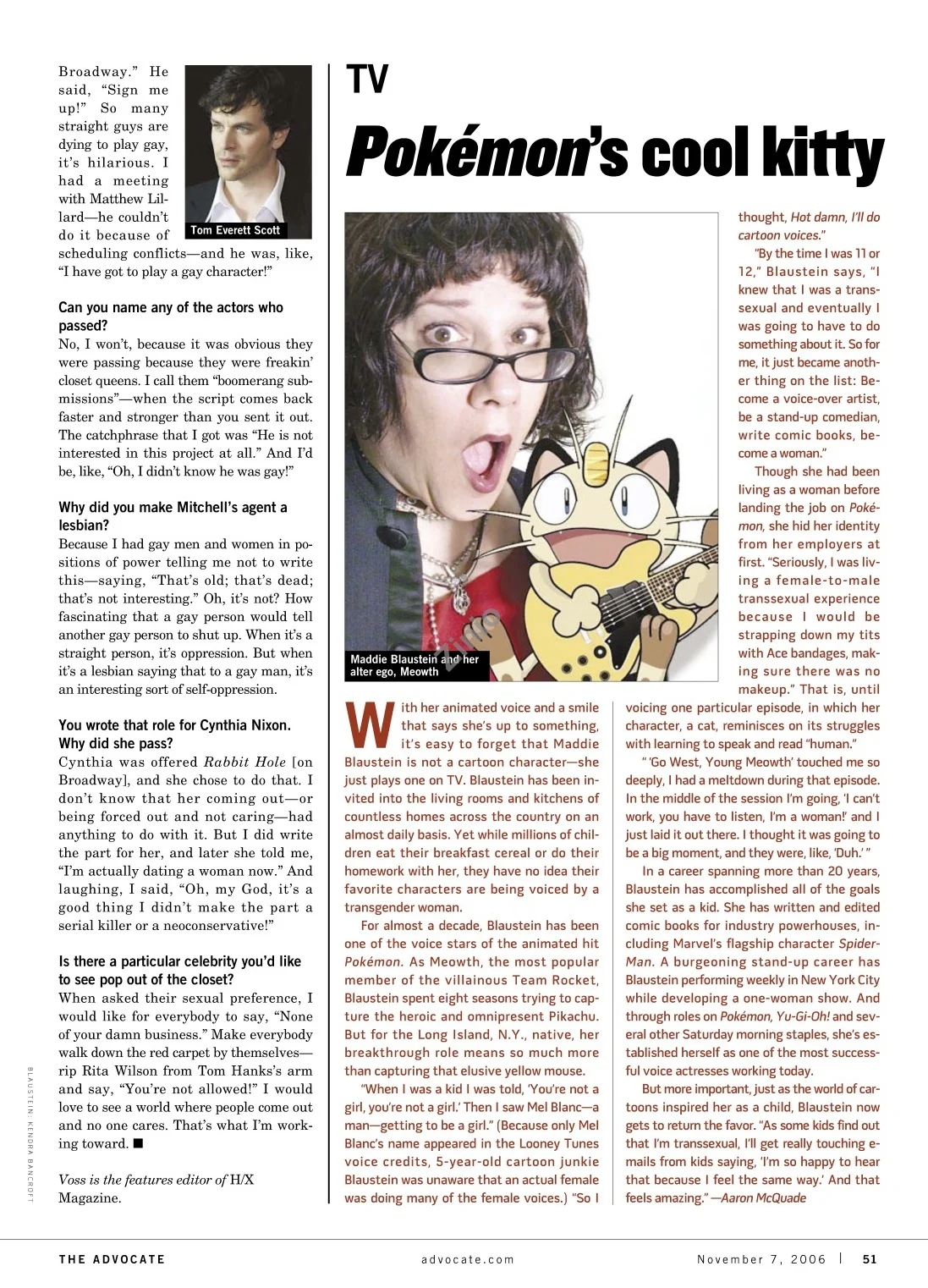With The Little Dog Laughed, which begins performances October 26 at New York City's Cort Theatre, gay playwright Douglas Carter Beane (As Bees in Honey Drown) explores one of Hollywood's favorite taboo topics: closeted movie stars. A sensation off-Broadway earlier this year, this satire centers on Mitchell (Tom Everett Scott), a rising young screen idol who falls for a "gay-for-pay" escort (Roseanne's Johnny Galecki), much to the horror of Mitchell's lesbian agent (Julie White). By shouting the unspoken or only whispered, can Beane — who also penned the screenplay for To Wong Foo, Thanks for Everything! Julie Newmar — teach old dogs new tricks?
By Brandon Voss
The Advocate: Was Little Dog inspired by any specific closet cases?
Douglas Carter Beane: Actually, the actor character was originally a politician — because I was hearing so many neocon gay rumors, and from very reliable sources. There was not a specific actor, but the play has really opened my eyes to that world. I said to Armistead Maupin, "I'm writing this, but I'm worried it seems a little dated, like some '50s Rock Hudson kind of a thing." Then he rattled off all the closeted movie stars, and I was, like, "Oh, I forgot about them!"
Did Tom Everett Scott [who stars in the TNT series Saved] have any qualms about taking over the role of Mitchell for the Broadway run?
We'd been getting a lot of passes, so I was getting frustrated and very angry. The pressure was on to come up with a television celebrity, so I called Tom, who's an old friend of mine, and said, "Tom, you have to be naked, and you have to kiss a boy. But you get to be on Broadway." He said, "Sign me up!" So many straight guys are dying to play gay, it's hilarious. I had a meeting with Matthew Lillard — he couldn't do it because of scheduling conflicts — and he was, like, "I have got to play a gay character!"
Can you name any of the actors who passed?
No, I won't, because it was obvious they were passing because they were freakin' closet queens. I call them "boomerang submissions" — when the script comes back faster and stronger than you sent it out. The catchphrase that I got was "He is not interested in this project at all." And I'd be, like, "Oh, I didn't know he was gay!"
Why did you make Mitchell's agent a lesbian?
Because I had gay men and women in positions of power telling me not to write this — saying, "That's old; that's dead; that's not interesting." Oh, it's not? How fascinating that a gay person would tell another gay person to shut up. When it's a straight person, it's oppression. But when it's a lesbian saying that to a gay man, it's an interesting sort of self-oppression.
You wrote that role for Cynthia Nixon. Why did she pass?
Cynthia was offered Rabbit Hole [on Broadway], and she chose to do that. I don't know that her coming out — or being forced out and not caring — had anything to do with it. But I did write the part for her, and later she told me, "I'm actually dating a woman now." And laughing, I said, "Oh, my God, it's a good thing I didn't make the part a serial killer or a neoconservative!"
Is there a particular celebrity you'd like to see pop out of the closet?
When asked their sexual preference, I would like for everybody to say, "None of your damn business." Make everybody walk down the red carpet by themselves — rip Rita Wilson from Tom Hanks's arm and say, "You're not allowed!" I would love to see a world where people come out and no one cares. That's what I'm working toward.
The Advocate, December 2006.



